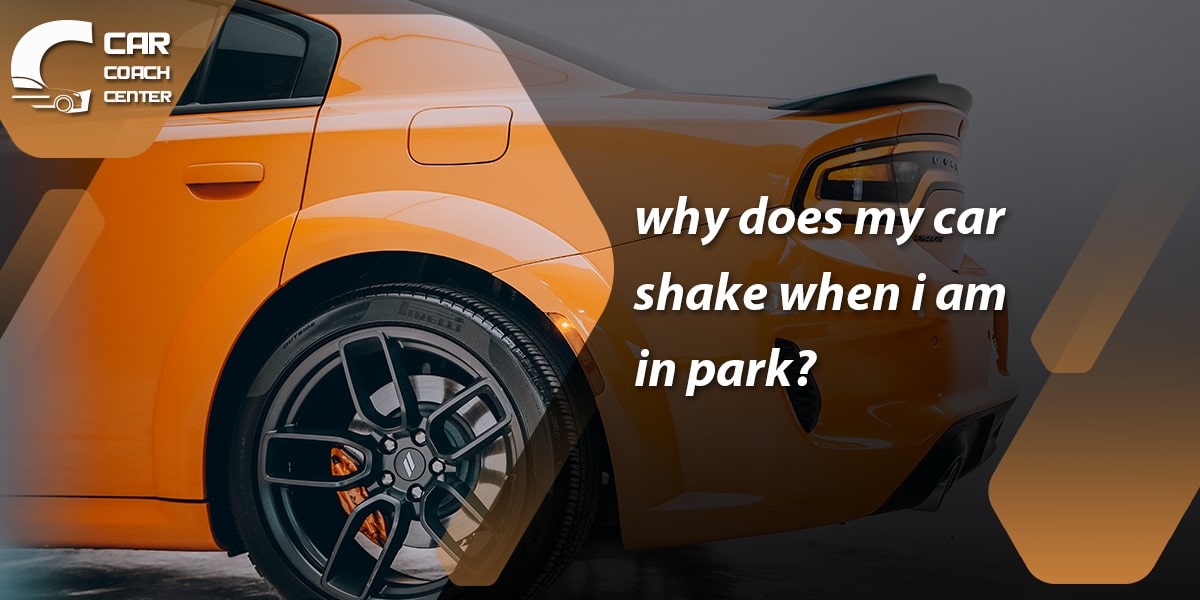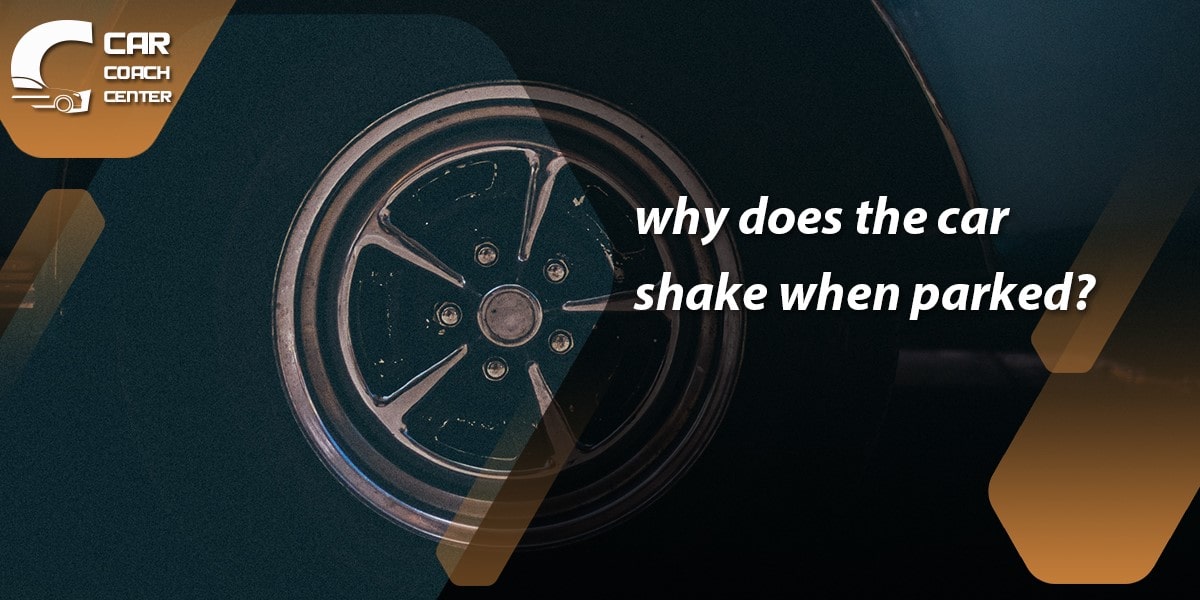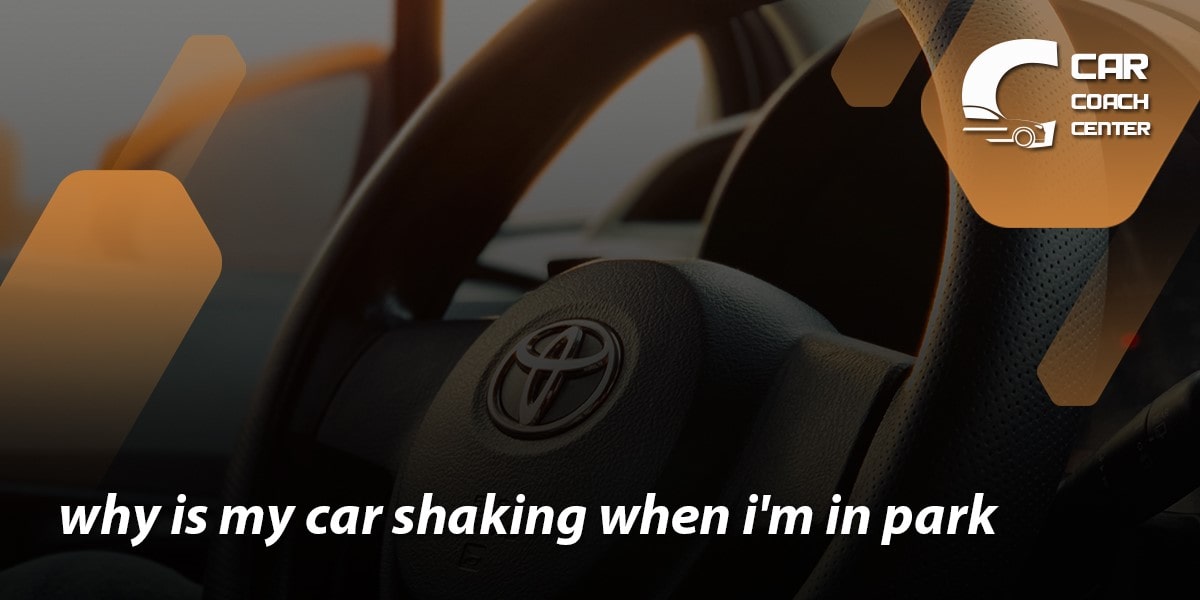Car Shaking In The Park
The tranquility of a parked car, seemingly still amidst the world’s hustle, can be suddenly disrupted by an unexpected phenomenon: the car shaking while in the park.
This puzzling occurrence often baffles car owners, seeking answers as to what might be causing their stationary vehicle to exhibit such unsettling behavior. Beyond the serene surface lies a world of intricate mechanics, environmental factors, and wear and tear that contribute to this unusual sensation.
In this article, we embark on a journey to unravel why cars shake while parked. From the gentle purr of the idling engine to the impact of weather conditions, we will delve into the multifaceted reasons that can set your car in motion even when it’s meant to be still.
By exploring the diverse range of culprits – from unbalanced wheels to fluid imbalances – we aim to equip car owners with the knowledge needed to diagnose and address these issues, restoring their parked cars to a state of calm and stability. So, fasten your seat belts as we navigate the complexities of car vibrations, seeking to clarify the unsettling phenomenon of a car shaking at rest.

Symphony of Vibrations: Decoding the Mystery
As you sit behind the wheel of your seemingly dormant vehicle, you might experience an unexpected sensation: the car shaking while in the park. This curious occurrence, often mistaken for a minor inconvenience, can be a symphony of vibrations rooted in many factors. Delving into automotive mechanics, we uncover the hidden reasons behind this puzzling phenomenon.
At the heart of this symphony is the idling engine. While your car might appear motionless, the engine is engaged in a delicate dance of internal combustion, generating power to keep various systems running even when the vehicle is stationary.
Engine mounts, which secure the engine to the chassis, play a crucial role in damping vibrations. If these mounts are worn or damaged, the engine’s movements can reverberate through the vehicle, causing it to shake. Moreover, issues with spark plugs, fuel injectors, or air intake systems can disrupt the smoothness of engine operation, further contributing to the vibrations.
The environment also lends its notes to this vibrational composition. Extreme weather conditions, such as scorching heat or bone-chilling cold, can affect fluid viscosities, engine performance, and tire pressure. In turn, these variations can lead to your parked car shaking. Harsh weather can also impact the lubrication of moving parts, potentially exacerbating the vibrations.
Intriguingly, modern vehicles often employ technologies that intentionally cause the engine to turn off and on during brief stops, like at traffic signals.
While this is done to save fuel and reduce emissions, it can result in momentary vibrations as the engine restarts. Additionally, hybrid and electric vehicles have their own dynamics involving the interplay between internal combustion and electric propulsion systems, which can introduce unique vibrations to parked cars.
Idle Woes: Unraveling the Role of the Engine
Behind the seemingly tranquil facade of a parked car lies an intricate symphony of mechanical processes, with the engine as the conductor orchestrating a complex performance.
When your car shakes while in the park, the engine’s idling behavior is often responsible for this disconcerting sensation. Let’s dive into the engine’s inner workings and uncover how its idling intricacies can lead to those unexpected vibrations.
At its core, idling refers to the state where the engine is running, but the vehicle is stationary. During this phase, the engine has several responsibilities, such as maintaining a minimum RPM (revolutions per minute) to keep critical systems operational. This process involves carefully balancing air and fuel mixture, combustion timing, and intricate control systems to ensure smooth operation.
However, various factors can disrupt this balance, giving rise to vibrations. One of the primary culprits is uneven combustion. If the fuel mixture is inconsistent or spark plugs are misfiring, the engine’s power delivery becomes erratic, leading to vibrations that can resonate through the vehicle.
Similarly, issues with the engine’s control systems, such as the throttle body or idle air control valve, can lead to fluctuations in RPM and consequently cause the car to shake.
Engine mounts play a pivotal role in dampening vibrations during idling. These mounts secure the engine to the vehicle’s chassis and are designed to absorb and isolate vibrations. Over time, these mounts can wear out, lose effectiveness, and transmit engine movement more directly to the car’s body, resulting in noticeable shaking.

Weather Whispers: The Impact of Climate on Your Car
Picture a parked car beneath the blazing sun or amidst the frigid embrace of winter. While it might seem like your vehicle is unaffected by the elements when stationary, the truth is that weather conditions play a significant role in causing your car to shake while parked. Let’s uncover the subtle ways in which climate exerts its influence on your parked vehicle, setting the stage for unexpected vibrations.
Extreme temperatures are one of the critical factors that can lead to your car shaking while parked. In scorching heat, the fluids within your vehicle can undergo changes in viscosity, affecting their ability to lubricate and dampen vibrations. This can increase friction within the engine and other mechanical components, causing the car to vibrate as if it’s eager to keep moving.
On the flip side, cold weather can have equally impactful consequences. As temperatures drop, fluids like engine oil and transmission fluid become thicker and less fluid, impairing their ability to properly lubricate and dampen vibrations. This can lead to increased resistance within the engine and drivetrain, translating into a noticeable shake when the car is at rest.
Humidity levels also play a role in the behavior of your parked car. High humidity can lead to condensation buildup within the engine and other mechanical parts, potentially affecting their performance and contributing to vibrations. Additionally, excessive moisture can lead to corrosion or degradation of vital components, further impacting the car’s stability.
Moreover, drastic shifts in temperature—such as when you park your car in direct sunlight and then move it to a shaded area—can cause various materials to expand and contract at different rates. This can lead to stress within the vehicle’s structure, inducing vibrations that resonate throughout the car.

Tires and Tremors: Unbalanced Wheels and Beyond
While parked, your car might seem like it’s resting peacefully, but beneath the surface, a symphony of mechanical interactions is at play. One of the most common culprits behind your car shaking while in the park is the condition of your tires and wheels. Let’s dive into unbalanced wheels, tire wear, and their impact on your parked car’s stability.
Tires are more than just rubber; they are a critical interface between your vehicle and the road. They ensure a smooth ride and stable performance when they are in optimal condition. However, over time, tires can become unbalanced due to uneven wear, improper alignment, or the accumulation of debris. These imbalances can cause your parked car to shake, even when you’re not in motion.
Wheel balance is vital because any slight discrepancy in weight distribution can lead to vibrations. An unbalanced wheel can create a noticeable wobble as it rotates, generating vibrations that travel through the suspension and body of the car. This can manifest as a shaking sensation, mainly when the vehicle rests.
Tire wear is another factor contributing to your parked car’s shaking. Uneven tire wear, whether caused by misalignment or insufficient rotation, can create imbalances in the tire’s structure. As these imbalanced portions of the tire come into contact with the ground, they generate vibrations that can resonate through the vehicle, even while it’s parked.
Moreover, worn-out or damaged suspension components can impact your parked car’s stability. The suspension system plays a crucial role in absorbing shocks and vibrations from the road. When these components are compromised, such as worn-out shock absorbers or bushings, the vibrations can transfer more readily to the car’s body, resulting in shaking.
Beyond Park: Shaking While Stopped at Signals
The phenomenon of a car shaking while parked might seem confined to moments of stillness, but the reality is that it can extend beyond stationary parking. Picture yourself at a traffic signal with your foot firmly on the brake pedal, yet you feel an unsettling vibration coursing through your vehicle.
While perplexing, this experience is not uncommon and can be attributed to various factors that extend beyond the mere act of parking.
One of the primary reasons for your car to shake while stopped at signals is related to transmission. Modern vehicles often feature automatic transmissions equipped with torque converters. These converters use fluid coupling to transmit power from the engine to the transmission.
However, the converter can disengage during deceleration or come to a complete stop, causing the engine to momentarily lose connection with the transmission. You might feel a jolt or a slight shake when the engine and transmission re-engage as you release the brake.
Moreover, issues with the drivetrain or driveline components can also contribute to vibrations while stopped. The drivetrain is a complex system that transfers power from the engine to the wheels. If there’s wear, damage, or misalignment in components like the driveshaft or universal joints, the result can be noticeable vibrations even when the vehicle is stationary.
Additionally, modern vehicles’ intricate network of sensors and control systems can influence these vibrations. Idle control systems, which regulate engine speed during rest periods, can cause momentary fluctuations that result in a slight shake. Similarly, the transmission’s shifting behavior during stop-and-go traffic can create vibrations as the gears engage and disengage.
Hybrid and electric vehicles bring their own nuances to the mix. The transition between electric and internal combustion modes and regenerative braking can lead to unique vibrations while stopped. As the vehicle switches between power sources, you might experience varying vibration levels as the systems adjust to different operating modes.

Fluid Dilemmas: Fluid Levels and Their Effects
Beneath the polished exterior of your parked car lies a network of fluids that play a vital role in maintaining its smooth operation.
From engine oil to transmission fluid, these fluids are the lifeblood of your vehicle, and their levels can significantly impact whether your car shakes while parked. Join us as we delve into fluid dynamics and explore how inadequate fluid levels can lead to unexpected vibrations.
Engine oil serves as a lubricant, ensuring that the various moving parts within the engine work seamlessly. When oil levels are low, friction between these components can increase, causing the engine to operate less smoothly. This can lead to vibrations that manifest even when the car is stationary.
The irregular movement of engine components due to insufficient lubrication can send ripples of vibration through the entire vehicle, creating an unsettling sensation.
Transmission fluid, too, plays a crucial role in maintaining a smooth operation. It allows the gears to shift smoothly and aids in regulating temperatures within the transmission. Inadequate transmission fluid levels can lead to erratic shifting patterns and increased friction, resulting in vibrations that might be noticeable while the car is in the park or stopped at signals.
Beyond engine and transmission fluids, power steering fluid also deserves attention. Low power steering fluid levels can lead to increased effort required to turn the steering wheel, potentially causing vibrations as the power steering system struggles to assist in maneuvering the vehicle.
Brake fluid is another fluid that should be noticed. When brake fluid levels are low, it can affect the braking system’s performance, potentially causing uneven braking force distribution. This imbalance can lead to vibrations during braking, which might carry over even when the car is stationary.
Diagnosing and Remedies: Navigating the Troubleshooting Process
Unraveling the mystery of a car shaking while parked requires a systematic approach to diagnosis and remedies. As a car owner, understanding the troubleshooting process can empower you to identify the underlying causes of vibrations and take appropriate steps to restore stability. This section guides you through diagnosing the issue and exploring potential remedies.
Step 1: Observation and Assessment
Begin by observing the conditions under which your car shakes. Is it more noticeable at certain times, such as when the engine is idling, or you’re stopped at signals? Note any accompanying sounds, smells, or dashboard warning lights. Such observations can provide valuable clues about the nature of the problem.
Step 2: Fluid Checks
Start with a comprehensive fluid check. Examine engine oil, transmission fluid, power steering fluid, brake fluid, and coolant levels. Ensure they are at the recommended levels and are in good condition. Address any deficiencies by topping up or replacing fluids as needed.
Step 3: Tire and Wheel Inspection
Inspect your tires for uneven wear and check for proper tire pressure. Ensure that your wheels are balanced and aligned correctly. If you notice any imbalances or irregularities, consider getting your tires rotated, balanced, or aligned by a professional.
Step 4: Engine and Drivetrain Examination
Investigate the engine and drivetrain components. Check for worn or damaged engine mounts and any issues with the transmission, driveline, or suspension system. Address any mechanical problems promptly to prevent vibrations from spreading.
Step 5: Environmental Considerations
Reflect on the weather conditions in which the shaking occurs. If you notice patterns related to extreme temperatures or humidity, take measures to mitigate their effects. Regular fluid maintenance and adherence to recommended maintenance intervals can minimize the impact of environmental factors.
Step 6: Professional Evaluation
Consider consulting a qualified mechanic or technician if your DIY efforts yield a vague solution. They have the expertise and diagnostic tools to pinpoint the exact cause of the vibrations. They can also provide recommendations for necessary repairs or adjustments.
Step 7: Remedies and Solutions
Based on the diagnosis, implement the recommended remedies. This could involve replacing worn components, addressing fluid imbalances, or performing maintenance tasks such as wheel balancing and alignment. Follow the guidance of professionals to ensure that the remedies effectively address the root causes of the shaking.

conclusion
In the intricate world of automotive mechanics, the enigma of a car shaking while parked unfolds due to an orchestra of factors, from idling engines to the impact of climate and the condition of tires and fluids. As we’ve navigated through the symphony of vibrations, it becomes evident that every component and element plays a distinct role in shaping this phenomenon.
Understanding the nuances of engine behavior, weather dynamics, wheel balance, and fluid maintenance empowers car owners to diagnose, address, and even prevent the unsettling vibrations that can disrupt the serenity of a parked car.
With each remedy implemented and each issue resolved, the cacophony of vibrations gives way to a harmonious equilibrium. As you embark on your journey of maintaining a steady and stable parked experience, remember that the key lies in vigilant observation, proactive maintenance, and seeking professional assistance when needed.
Let the insights shared in this article serve as your guide to conquering the challenge of car shaking, ensuring that your vehicle remains a beacon of calm and tranquility. For more automotive insights and advice, be sure to visit carcouchcenter.com.
How to fix car vibrations?
Check tire balance, alignment, and suspension for potential issues.
What causes my car to shake?
Common causes include tire imbalance, worn brakes, or engine misfire.
Can bad spark plugs make my car shake?
Yes, faulty spark plugs can lead to car vibrations and performance issues.


